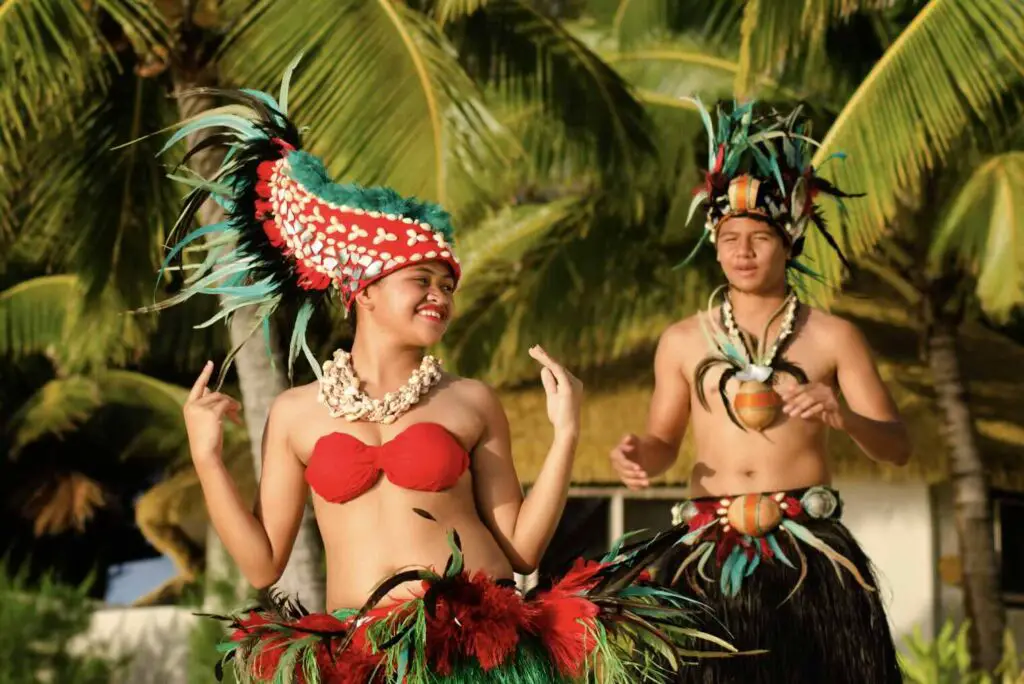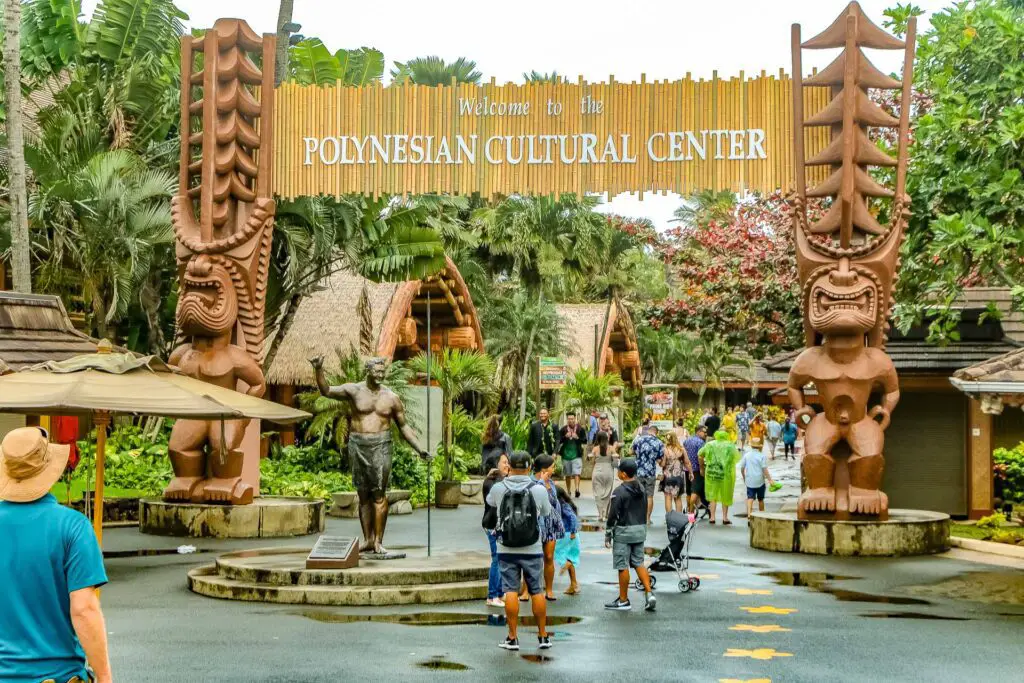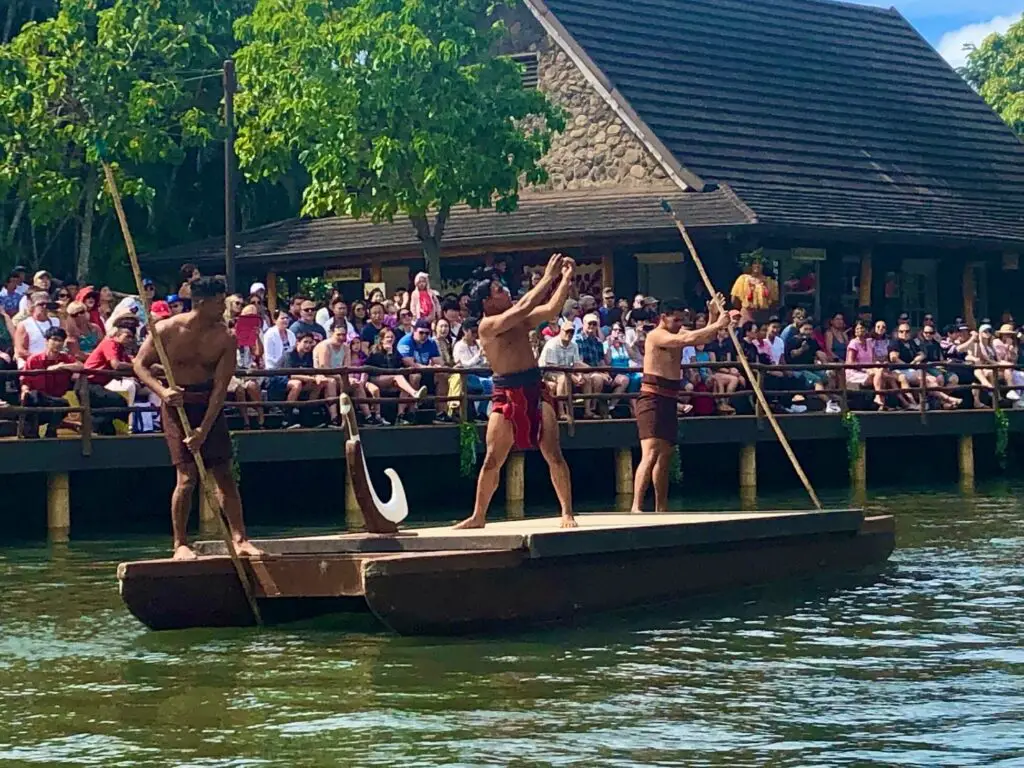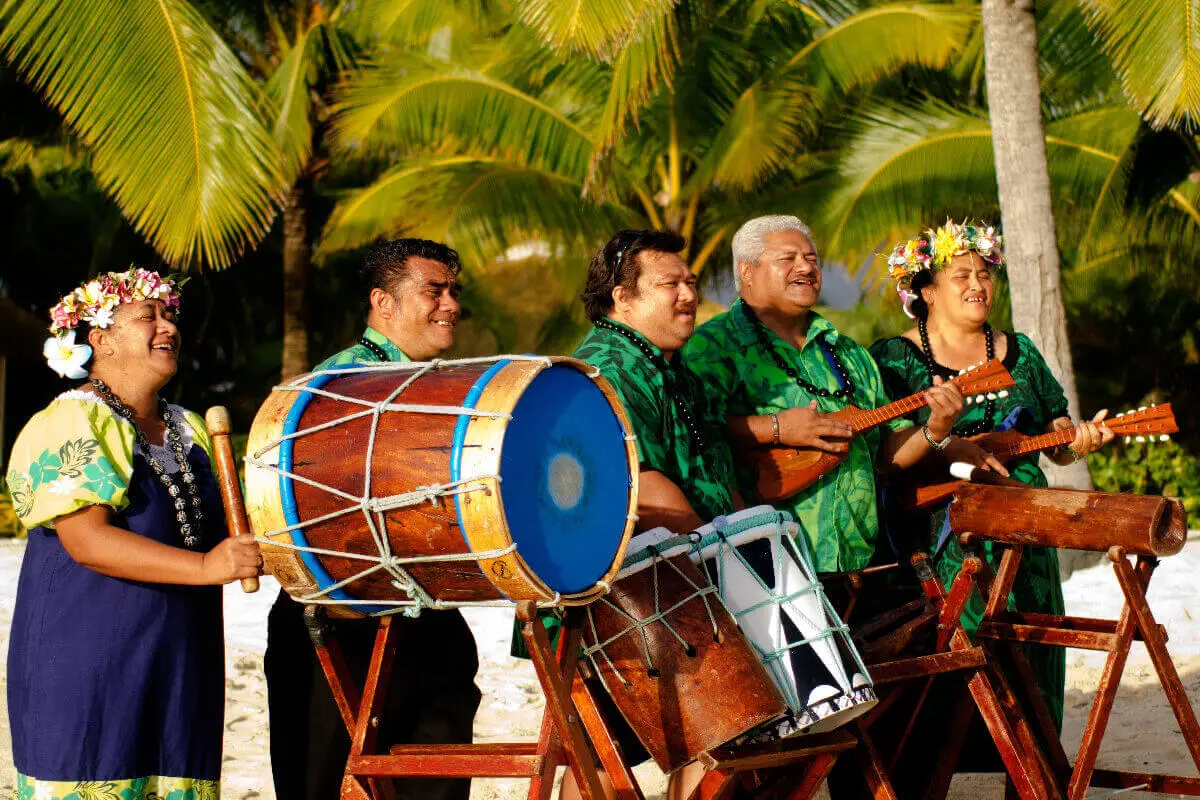Who are the Polynesians? This question may hold more profound value than just a query about a racial group. The Polynesians spread out across the islands sprinkled throughout the vast Pacific Ocean. They hold an enthralling history of audacious voyages, vivid cultures, and an undeterred spirit of preserving their heritage in the modern world.
By unboxing their past and celebrating their present, one realizes that their riveting journey continues to weave an intricate and colorful tapestry in the socio-cultural fabric of the world. Discover the origin of these intrepid seafarers and delve into the heart of their traditions and practices that personify their unique way of life. As we sail forward to the contemporary life of the Polynesians, it becomes evident how they have embraced changes while firmly anchoring in their roots.
Table of Contents
- Origin of the Polynesians
- Culture and Traditions of the Polynesian Race
- The Polynesians Today
- Related Questions
Origin of the Polynesians
Unraveling Another Travel Mystery: Origins of the Great Polynesian Race
Unearthing the origins of a people is much like uncovering a gem-filled treasure chest, and none more so than for the radiant Polynesian race. Spanning the vast expanse of the Pacific Ocean, from Hawaii to New Zealand, the Polynesians have a fascinating narrative that weaves a tale of courage, exploration, and unrivaled navigation skills.
Owing to its broad coverage, the Polynesian Triangle, as it’s often called, brims with countless tales, but let’s wind back the clock and head to the beginning. The genesis of the Polynesians reportedly traces back to an intriguing place – the Asian continent.
More specifically, linguistic, archaeological, and genetic evidence suggests these individuals hailed from one of the world’s oldest civilizations: Taiwan – indeed, fascinating!
Our Polynesian travelers began their voyages, moving southwards to the Philippines about 5000 years ago, finally reaching the Bismarck Archipelago. The Lapita people, as they are known, were the very first ancestors of the Polynesians.
While this migration itself feels like a vast undertaking, the primary source of fascination lies in how these adventurers spread and established communities across the vast Pacific.
Ever heard of ‘Wayfinding’? This traditional navigational technique was critical to the Polynesians voyaging throughout the oceanic expanse. Wayfinding rests on observing stars, animals, and other natural signs, firmly believing that nature always shows the way.
Around 1500 BC, these skillful navigators began moving eastwards, eventually populating Samoa and Tonga. By AD 800, the Polynesians had ventured to the farthest corners of the Polynesian Triangle.
By the early part of the second millennium, they settled in far-off places like Hawaii, New Zealand, and Easter Island, a testament to their indomitable spirit and maritime expertise.
Moreover, their settlement wasn’t just about physical displacement. Upon reaching these islands, the Polynesians carried their rich culture, sharing vibrant traditions that spread across the Pacific.
From the animated Hawaiian hula dance to the sacred Maori tattoo art, each facet of Polynesian culture paints a stunning canvas of an inspiring voyage, captivating explorers and travelers to this day.
Embracing their adventurous spirit, the Polynesians personify the essence of wanderlust, of stepping into the unknown, unafraid and undeterred, just like the nomadic existence many of us value and champion. Their story reminds them of the power of resilience, exploration, and the simple beauty of charting your course.
So, as that sun sets over the Hawaiian shoreline or that warming New Zealand breeze brushes past, remember the story of the Polynesians – it’s much more than just witnessing paradise; it’s cherishing a history of humanity’s eternal quest for exploration.
The journey’s never over, and there’s always a new horizon to discover. Just like the Polynesians, let’s keep sailing ahead, driven by curiosity and guided by the stars.

Culture and Traditions of the Polynesian Race
While the origins and migration patterns of the Polynesian race paint a fascinating picture of endurance and adaptability, the real magic of these spirited voyagers lies in their unique culture and traditions that have endured the test of time.
As wanderers committed to unlocking the mysteries of the Polynesian Triangle, an appreciation for the natural world became deeply intertwined with their daily lives. The Polynesians developed unique customs and cultural practices that celebrated their environment and showcased their adventurous spirit.
Different tattoo designs, for instance, distinguish the members of the Polynesian race from others.
These intricate and awe-inducing patterns are usually seen adorning their bodies in all their glamorous intricacy. But it’s not just art for aesthetics. Each tattoo carries a story of ancestral lineage, an individual’s personality, or their social status.
Another beautiful example of unique Polynesian culture is the dissemination of their folklore and history. Instead of relying on scripts and manuscripts, a deeply rooted oral tradition preserves their rich historical culture and ancestral mythologies.
These narrative songs and chants passed down by elders unfold tales of ancient gods, legendary heroes, and mythical creatures, keeping their history alive and vibrant.
In Polynesia, nature is an integral part of the cultural consciousness. The local people have a symbiotic relationship with it, and their respect for nature is reflected in their traditional practices.
The mana, or spiritual force, is believed to be present in all things and is revered, particularly in natural elements like land, rivers, and the sea. This awareness and appreciation of nature are what has primarily influenced the Polynesians’ environmental conservation efforts.
The Polynesians deeply love music and dance; they express their joys, sorrows, love, and other sentiments through rhythmic movements and songs. A prime example is the hula of Hawaii and the time of Tahiti.
These dances, often characterized by swaying hips and retelling of stories, are merely entertainments but vibrant parts of communal gatherings and festive celebrations.
The Polynesian’s unique gift-giving tradition also signifies their inherently generous nature. The act of giving not only strengthens societal relationships but also stands as a testament to deep respect and cooperation among the communities.
So, as one embarks on a journey to this extraordinary collection of islands, it becomes clear that the Polynesian societies are far more than just the attractive landscapes they reside in.
The true treasure lies in the richness of their culture, the depth of their traditions, and the boundless spirit that defines their race. Strip away the miles of turquoise water, and you will find a heart beating in rhythm with the undulating waves, powered by the age-old stories inked on their skin and carried in their reverberating songs.
In the Polynesian culture, the truly adventurous will find endless inspiration and profound wisdom.

The Polynesians Today
Dive into a world drenched in liquid turquoise, strewn with emerald jewels, and the cradle of an incredible race: the Polynesians. The descendants of these great seafaring wanderers still resonate with the spirit of exploration countless generations down the line.
Today, Polynesians’ population spans 28 distinct territories, including the ever-treasured Hawaii, New Zealand, French Polynesia, American Samoa, and Easter Island, among others.
According to recent data, there are approximately 2 million Polynesians across these islands, living among richly diverse landscapes and sea-wrapped horizons, continuing to shape a culture as vast and varied as the sea itself.
Geographically, the Polynesian Triangle defines the Polynesian region – a geographical depiction extending from Hawaii in the north to New Zealand in the southwest and eastward to Easter Island.
This assembly of islands forms some of the remotest populated areas on Earth – an epitome of human survival and adaptability!
Moreover, there’s so much to appreciate about Polynesian societal dynamics. Polynesian societies are traditionally organized around extended family units, with respect for elders’ wisdom and guidance.
However, the ripple of globalization has ushered in changes, and as societies evolve, so do the people.
Though the roots are in subsistence farming and fishing, today’s younger generation eyes opportunities in tourism, business, and administrative services while retaining the connection and respect for their cultural past.
Despite modern influences, Polynesians remain true to their cultural essence. Family and social networks are prioritized, creating a binding communal spirit in many aspects of societal life. The concept of ‘Alofa’ or ‘Aroha’ — love, empathy, and generosity — is deeply ingrained in Polynesian societies and reflected richly in their hospitality.
Interestingly, the Polynesian society also showcases a unique societal dynamic, the ‘Fa’a Samoa.’ This way of life emphasizes communal living, respect for elders, and devout faith. The love for music, dance, and storytelling forms crucial parts of Polynesian identity and communal interaction.
Bounce your feet to the rhythm of the Pate (drum), let your heart sway to the mesmerizing Hula dance, or immerse yourself in traditional Tau’olunga – every beat and movement weaves a story of the allure of these islands and the spirit of their people.
Polynesian societies also passionately celebrate their unique cultural heritage. Festivals such as Heiva in Tahiti or Teuila Festival in Samoa bring together Polynesians from various islands to celebrate their shared traditions. Music, dance, food, and canoe racing – these festivals are vibrant kaleidoscopes of Polynesian culture and unity.
In an ever-globalizing world, the spirit of the pioneering Polynesians thrives, and we are privileged to delve into the depths of their transformation journey and cultural amenity.
Be it through their welcoming hospitality, the charming ‘aloha’ spirit, or their boundless attachment to the sea that whispers tales of their ancestral mariners, the Polynesian race is a testament to the treasures and possibilities that lie beyond the beaten path.
Adventure awaits, fearless traveler, so why not let the Polynesian spirit guide you?

It is fascinating to see how the Polynesian culture, steeped in antiquity, remains relevant today. It continues to enrich the global cultural landscape and stands as a testament to their unyielding spirit and perseverance.
The Polynesians, known for their navigation skills since ancient times, continue to chart their course in this age of globalization. From wresting their way through the vast Pacific in search of new lands to negotiating identity in the present day, the Polynesians have ingeniously crafted a life that harmoniously blends tradition and modernity.
Significantly, their story reveals how the echo of the past reverberates into the present, thereby shaping their future trajectory.
At A Bus On A Dusty Road, we talk about travel, life, and ex-pat living. We are all about “Living Life As A Global Citizen.” We explore social, cultural, and economic issues and travel.
We would love to have you be part of our community. Sign up for our newsletter to keep up-to-date by clicking here. If you have any questions, you can contact me, Anita, by clicking here.
Listen to our Podcast called Dusty Roads. You can find it on all major podcast platforms. Try out listening to one of our podcasts by clicking here.
Subscribe to our A Bus On A Dusty Road YouTube Channel with great videos and information by clicking here.
Related Questions
How Do You Say “Hello” In Hawaiian And How It Is Traditionally Used?
In Hawaii, people will greet you by saying hello or “aloha.” They may also use the word aloha to say goodbye. Aloha is the traditional greeting in the Hawaiian language for greedy people that are friends, family, or even strangers. But the word aloha means much more than just hello or goodbye; there are many traditional and cultural meanings inside the word.
By clicking here, you can discover How Do You Say “Hello” In Hawaiian And How It Is Traditionally Used?
The Benefits And Disadvantage Of Heritage Tourism
There are many benefits and disadvantages to heritage tourism. Heritage tourism can be a fantastic way to discover another culture, location, or history. But if it is done incorrectly, it can be a disaster not just for the culture but also for the society and may bring irreversible environmental issues.
By clicking here, you can discover The Benefits And Disadvantage Of Heritage Tourism.
What’s The Difference Between Hawaiian And Polynesian?
Native Hawaiian in the Hawaiian island is considered to be part of Polynesia. It is part of what is known as the Polynesian triangle, which includes many islands in Polynesia. But even though Hawaiians are under the ethnic umbrella of Polynesia, there is still some difference between the Hawaiians and their Polynesian counterparts.
By clicking here, you can discover What’s The Difference Between Hawaiian And Polynesian?


